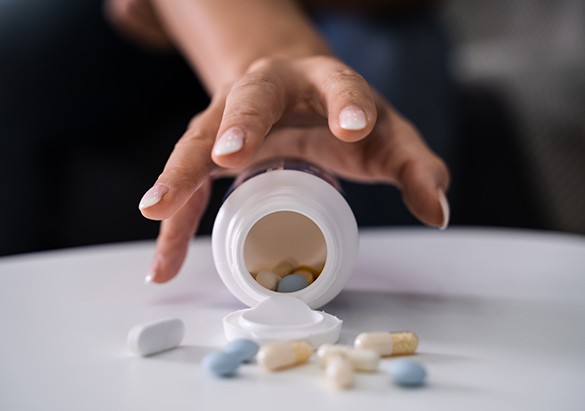Medical Detox
At the beginning of the twentieth century, nearly forty percent of recovering alcoholics died from withdrawal symptoms. By the end of the last century, the figure had dropped to one percent. If you are trapped in a cycle of guilt and self-blame, it is easy to convince yourself that your drug or alcohol addiction is your fault. The truth is that addiction arises from your mind and body becoming dependent on the substance you are using. When you suddenly deprive your body of the drugs or alcohol, it revolts and goes into a state known as withdrawal. This process can turn deadly, especially if you have a history of medical or psychiatric problems.
Withdrawal can be extremely dangerous, especially for those with a history of medical or psychiatric problem. In some cases, it can be fatal. A properly supervised program of medical detox allows addicts to safely withdraw from the substances they have been using.


What is Withdrawal?
When you use drugs or alcohol for the first time, your body reacts to it, in the way it would react to many unknown substances. Imagine someone accustomed to a bland diet eating spicy food for the first time. They may feel some discomfort or feel a little ill. But if that person eats spicy food regularly from that point on, they will get used to it and the physical effects will fade. In the same way, your body becomes progressively more accustomed to drugs or alcohol with each subsequent use. Eventually, you reach the point where your brain convinces your body that you need these substances in the same way you need food and water. And when you suddenly stop using them, your body reacts as strongly as it would if you deprived yourself of food or water.
Withdrawal can take different forms, depending on the substance, the user, the length of use, coexisting medical conditions and other factors. For some people, withdrawal manifests as mild nausea and cravings. For others, withdrawal involves the body going into severe shock. The user might experience symptoms like hallucinations, delirium tremens (DT), dehydration, vomiting and muscle cramps. Some addicts develop serious illnesses during withdrawal as a result of weakened immune systems.

What is Medical Detox?
For people experiencing serious withdrawal, medical detox can literally be a life-saver. It is a program where the user is placed into the care of a medical team and supervised throughout the withdrawal process. Doctors keep a close eye on the withdrawal symptoms and ensure that life-threatening conditions such as dehydration are treated immediately. One of the dangers of withdrawal is hallucinations and thoughts of suicide. Patients undergoing medical detox are kept safe during this frightening time.
Once medical detox has been completed, the addict is out of danger as far as withdrawal goes. With the drugs or alcohol out of their system, they are ready to begin the process of overcoming the addiction through a rehab program. There is evidence that people who undergo medical detox are more likely to recover and stay sober, and less likely to experience long-term effects resulting from withdrawal.
Further Reading:
Drug Detox
Alcohol Detox
Detox Center in Ontario
NIH: Medical Detox Definition
Talk To One Of Our Specialists By Calling 1-855-885-4747
